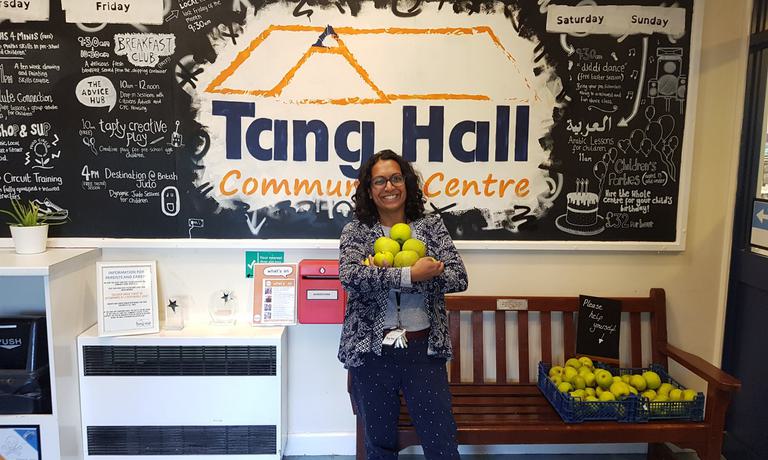Poor diet is the leading cause of bad health, and accounts for many more deaths than alcohol and drug abuse. This level of preventable disease – and death – could be improved if everyone was able to eat proper healthy food. Health inequality means they are not, and statistics show there is a strong correlation between disadvantage and diet-related ill health.
That is partly about availability, because healthy food is harder to find if you live in an area experiencing disadvantage, and it is partly about affordability, because healthy food is, for many people, out of reach financially. Junk food is cheaper and easier to buy. We believe that no urban community should be more than 15 minutes’ walk from good affordable food, but that is far from the truth at present. Many areas in the UK are “food deserts” where it’s not possible to buy affordable and healthy food – yet these areas have the highest density of fast-food outlets.
There’s also the stark fact that some people do not have enough money to buy enough food, as we have seen in the growth in food banks over recent years.
The problem does not exist in isolation and is connected to other health factors such as jobs and income, local economies and local environments.

- The poorest fifth of UK households would need to spend 50% of their disposable income on food to meet the Government’s Eatwell Guide costs. This compares to just 11% for the richest fifth. (Source: The Food Foundation, The Broken Plate.)
- Healthier foods are nearly three times as expensive as less healthy foods, calorie for calorie.
- Four of the top five risk factors for health problems and early death are related to diet.
Our work on food security and health
Some projects we fund support food security on a local level through projects such as community kitchens and gardens, and many of our funded projects became involved in meeting people’s basic needs through food banks during COVID-19. Our long-term aim is social change that will tackle the root causes of food insecurity.
One of the simplest ways to support families on low incomes is to ensure every child in a low-income
household receives a meal at school. We are calling on the government to expand free school meals to all children from families receiving Universal Credit. Read more in our community manifesto for health justice.
We are surrounded by takeaways and fast food shops. We recognise the need for food banks in society but we wanted to support people a step before they needed to turn to foodbanks, which is why we now have the food co-operative.
Stephen, project
Manager, Tang Hall Community Centre Food Co-op


Tang Hall Food Co-operative
The Tang Hall Food Co-operative was set up to address the challenges of limited access to shops where residents could buy healthy, affordable food, within their own community.
The research on food and health
To read more on food security and health, click the links below
The Broken Plate, The State of the Nation’s Food System, Annual Report from the Food Foundation, 2023.
National Food Strategy: Independent Review for Government, Dimbleby, H, 2021.
A Crisis Within a Crisis: The Impact of Covid-19 on Household Food Security. Report by the Food Foundation, 2021.
Food Insecurity Tracking, A series of nationally representative surveys from the Food Foundation to assess the impact of household food insecurity across the UK.
Levelling Up on Regional Dietary Inequalities: A Data Story, The Food Foundation, 2022.
Health Equity in England: The Marmot Review 10 Years On, p84-85. UCL Institute for Health Equity, 2020.
